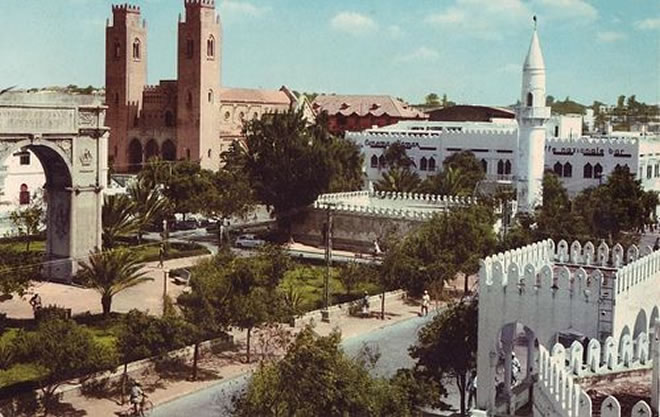Mohamed I. Trunji
Friday July 30, 2021

The 1959 political elections, the second held under the trusteeship regime, started on 4 March and were spread out over the following four days because of the largely nomadic or semi-nomadic life of the population who cast their votes without electoral certificates. The elections were, for the first time, held on universal adult franchise, meaning that the right to vote was extended to women. (Article 9 of Law n. 26 of December 1958) Out of the 30 constituencies nationwide, 19 were presented with party lists by the SYL, a phenomenon known as Lista Unica [sole list of candidates], a system which obviously favoured the SYL. In areas where only one list was registered, the Minister of the Interior was empowered to enact provisions in order to prevent electors from one area going to vote in other areas where elections were being held. On the face of it, that sounded reassuring, but these provisions were defined in such a loose way as to render them almost meaningless. Both the opposition parties and the United Nations Advisory Council, based in Mogadiscio, expressed serious doubts that the elections would be free and fair.
Predictably, the SYL Party won the majority of seats in the Parliament. However, political observers, including the United Nations, accused the ruling Party of winning through the use of intimidation tactics and electoral malpractices. In fact, the voting pattern in many areas showed that 100 per cent of the vote was cast for the ruling party. Ultimately, when the ballots were counted, distribution of seats in the legislature among the political parties was 83 to the SYL, 5 to the HDMS and 2 to the Liberal Party.
Deprived of the victory it was confidently expecting, the Hisbia Destur Mustaqil Somali Party (HDMS), cried foul, pressing for the entire election results of a number of districts, including Lugh Ferrandi (Upper Juba), to be annulled.
As a result of this legal challenge, the Court had invalidated the electoral results of this district on grounds of serious irregularities. (Ruling of the Regional Court of Upper Juba, April 9, 1959). However, it was difficult to understand why only the Lugh electoral results were annulled notwithstanding the fact that, practically, throughout the territory votes were systematically rigged and irregularities denounced. Prior to the judicial revision, the two parliamentary seats of Lugh were allocated to the SYL Party represented by two men hailing from the Darod clan. The Judge found a violation of Articles 1 and 2 of Electoral Law based on evidence of movement of voters from the electoral district of Bardera, who had intended to support the SYL Party by casting their vote at the locality of Sarenley which falls under the electoral district of Lugh Ferrandi. Article 1 of the electoral law provides for each elector to have one vote in his/her electoral district, and Article 2 provides for each district to constitute one electoral district. The invalidation of Lugh electoral results rekindled old grudges and animosity, leading to accusations that the Hawiye-dominated government was biased against the Darod.
By 1956, the SYL Party, there were clear signs showing that, the Party holding the parliament majority, and destined to hold the reins of power after the end of the trusteeship regime, was a mere fragile coalition between feuding nomadic clans, a recipe for disintegration into factions within the Party on tribal line.
Darod tribesmen claim the two parliamentary seats of Lugh Ferrandi for their clan
Soon after the Court ruling was made public, an angry Darod tribesmen, with business in Mogadiscio, all associated with the SYL Party, met the President of the National Assembly, Aden Abdulla, to claim the “right” of their clan to secure the two parliamentary seats invalidated by the Court. Aden Abdulla, still President of the Party, received them in his office, at their behest, On behalf of the Darod, they spoke angrily about the invalidation of Lugh elections seeking the Court decision to be reversed whether right or wrong.
Aden Abdulla tried to explain them how it was inappropriate to present the case in that way; telling that he was not a Darod. but a leader of a national Party, that what happened was not nobody’s fault because the Hisbia Destour Mustaqil Somali Party (HDMS) or any other political Party, had the right to seek redress from the Judge and [it was] for him to decide [the case] after ascertaining the facts. The group was told to bring the matter to the attention of the Prime Minister, but not in the way they had presented it to the President of the Party. “Having made my position clear, they changed their attitude, displaying a more reasonable tone.” (Diary April 11, 1959).
M. Trunji
E-mail: [email protected]